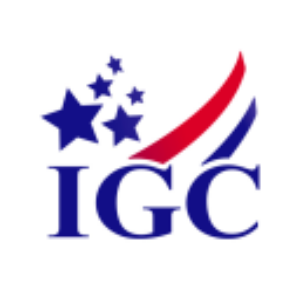IGC-AD1’s Interim Phase 2 Data Show a Reduction in Alzheimer’s Agitation at Week Two
- Study Achieves Secondary End Point: Demonstrates Clinical Reduction, approaching statistical significance, at Week Two, in Agitation in Dementia due to Alzheimer’s -
IGC-AD1 targets neuroinflammation and CB1 receptor dysfunction, and the investigational drug contains THC as one of two active pharmaceutical agents. THC is a principal psychoactive cannabinoid found in Cannabis. IGC-AD1 is a first-of-its-kind THC-based-formulation undergoing a formal Phase 2 clinical trial in Alzheimer’s disease (clinicaltrials.gov, Identifier: CT05543681).
“We are excited to share that the interim results on the secondary outcome show that IGC-AD1 can provide fast relief with few side effects in reducing agitation in Alzheimer’s dementia compared to placebo. We are especially excited by these results given the limited therapeutic options currently available,” said Ram Mukunda, CEO of IGC Pharma.
“Alzheimer’s affects not only cognition but also mood and behavior that increase in intensity as the disease progresses. Approximately 6.5 million individuals in the
“The interim data indicate early signs of potential clinical benefit with IGC-AD1 with infrequent treatment limiting side effects. We are encouraged by this data and will continue to work with the regulatory authorities on advancing IGC-AD1 through to commercialization,” added Mukunda.
The secondary outcome, as measured by the change in agitation versus placebo using a standard measurement scale, the Cohen Mansfield Agitation Inventory (“CMAI”) at baseline and week 2, exhibited an Effect Size (“ES”) of 0.79 (p=0.071) indicating a large magnitude of difference between the active and placebo groups. For context, a study published in 2003 concluded that an effect size over 0.5 corresponds to a change that is noticeable to a careful observer, highlighting the notable impact of IGC-AD1. Further, in May 2023, the FDA approved Brexpiprazole, an atypical antipsychotic, with a boxed warning. This approval followed a significantly larger 12-week Phase 3 trial, which showed a Cohen’s d effect size of 0.35 whereas IGC-AD1 showed an effect size of 0.79 in two weeks, emphasizing, subject to further trials, the potential of IGC-AD1 as a treatment option.
The ongoing 146-patient clinical trial is a multicenter, double-blind, randomized, placebo-controlled study designed to assess safety and efficacy of IGC-AD1 in treating agitation in dementia due to Alzheimer’s. To date over 1,000 oral doses have been administered, with no dose-limiting adverse events observed, highlighting the safety profile of IGC-AD1.
About IGC Pharma Inc. (IGC):
IGC Pharma Inc. (“IGC”) is focused on Alzheimer's disease, developing innovative solutions to address this devastating illness. The Company's mission is to transform the landscape of Alzheimer's treatment with a robust pipeline of five promising drug candidates. IGC-AD1 and LMP target the hallmarks of Alzheimer's disease, including neuroinflammation, Aβ plaques, and neurofibrillary tangles. IGC-AD1 is currently undergoing a Phase 2 clinical trial for agitation in dementia associated with Alzheimer's (clinicaltrials.gov, CT05543681). TGR-63 disrupts the progression of Alzheimer's by targeting Aβ plaques. IGC-M3, currently in preclinical development, aims to inhibit the aggregation of Aβ plaques, potentially impacting early-stage Alzheimer's. IGC-1C, also in preclinical stages, targets tau protein and neurofibrillary tangles, representing a forward-thinking approach to Alzheimer's therapy. In addition to its drug development pipeline, IGC Pharma seeks to leverage artificial intelligence (“AI”) for Alzheimer's research. Their AI projects encompass various areas, including clinical trial optimization and early detection of Alzheimer's.
Forward-Looking Statements:
This press release contains forward-looking statements. These forward-looking statements are based largely on IGC Pharma’s expectations and are subject to several risks and uncertainties, certain of which are beyond IGC Pharma’s control. Actual results could differ materially from these forward-looking statements as a result of, among other factors, the Company’s failure or inability to commercialize one or more of the Company’s products or technologies, including the products or formulations described in this release, or failure to obtain regulatory approval for the products or formulations, where required, or government regulations affecting AI or the AI algorithms not working as intended or producing accurate predictions; general economic conditions that are less favorable than expected; the FDA’s general position regarding cannabis- and hemp-based products; and other factors, many of which are discussed in IGC Pharma’s
View source version on businesswire.com: https://www.businesswire.com/news/home/20240416790137/en/
Investors
IMS Investor Relations
Rosalyn Christian / Walter Frank
igc@imsinvestorrelations.com
(203) 972-9200
Media
JVPRNY
Janet Vasquez
jvasquez@jvprny.com
(212) 645-5498
Source: IGC Pharma, Inc.






